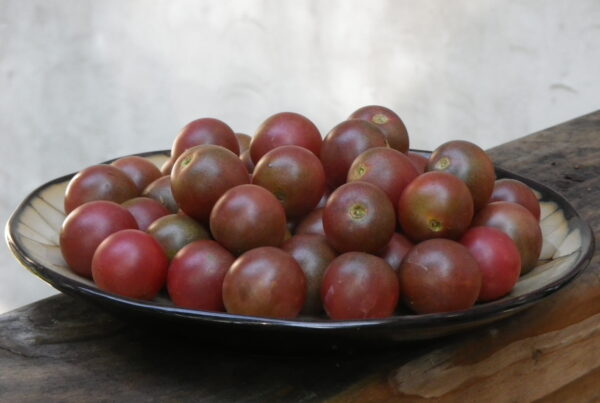Federal Legislative Initiative
On February 26, Representative Chellie Pingree of Maine introduced a major piece of legislation designed to help the nation’s farmers and ranchers meet the growing weather challenges of the 21st Century. The Agriculture Resilience Act (ARA), would help produceers withstand the impacts of climate change and contribute to climate solutions by making US agriculture carbon-neutral through six major initiatives:
- Expand USDA funding for research into climate adaptation and mitigation strategies, including on-farm demonstration, and development of new public crop cultivars and livestock breeds with enhanced resilience and resource efficiency.
- Build soil health and sequester carbon through USDA conservation programs and by establishing three new agroforestry centers.
- Strengthen farmland preservation through USDA programs, including an initiative within Local Agriculture Markets Program (LAMP) that helps farmers improve their bottom line while sequestering more carbon and improving agro-ecosystem resilience.
- Support adoption of advanced grazing management systems that sequester carbon, protect water quality, and optimize livestock health and product quality.
- Increase on-farm renewable energy production.
- Reduce food loss and waste, and recycle unavoidable food waste and other organic residues to the land via composting.
For more information, see an in-depth summary of the ARA HERE. Rep. Pingree’s press release HERE and on the NSAC blog HERE.
Take Action:
Contact your Congressional Representative and ask her/him to co-sponsor HR 5861, the Agriculture Resilience Act (ARA), introduced on February 26 by Rep. Pingree of Maine. Note that if six or more constituents contact a Representative on a particular bill or issue, s/he takes note – and the more calls per district the better! Let’s put this excellent legislation on the map!
Farmer Letter on Climate Change Solutions in Agriculture
We now have over 2,000 signatures nationwide, including 88 from Virginia. Meanwhile, we have postponed our planned public release of the letter until the corona virus situation is under control, and both decision makers and the populace as a whole has more “bandwidth” to fully hear our vital message. Working from home and on our farms, we can continue to build momentum behind our message that, with best organic and agro-ecological practices, we can develop resilient systems and help restore the world’s carbon balance and climate stability.
If you have already signed – thank you so much ! If not, visit https://vabf.org/, and click on the Farmers Letter on Climate as it scrolls by.
National Organic Producers Survey
If you are a USDA certified organic producer or you are in transition toward certified organic production, the Organic Farming Research Foundation (OFRF) and Organic Seed Alliance (OSA) want to hear from you regarding organic research and plant breeding priorities. To access the survey, visit https://vabf.org/, and click on the National Organic Producers Survey as it scrolls by.
Public Health Note: until the COVID19 pandemic is brought under control, the best way to sign up for NRCS and other USDA programs will be on line. I heard today that USDA is moving toward working remotely (i.e. at home), and although I did not see anything yet on the VA NRCS web site, you should be able to get information on how to enroll remotely by calling your district NRCS office or the Richmond state office at 804-287-1692.
Conservation Stewardship Program (CSP)
Signup open through May 29
Would you like to build a whole-farm conservation and production system that makes your farm more resilient to weather extremes and other stresses, more profitable, and at the same time become part of the solution to climate, water quality, and other environmental problems? Do you wish there was a way to obtain financial support to continue with the land stewardship practices you already use and to add new, cutting edge practices. If so, the Conservation Stewardship Program (CSP) is for you! Designed to support a whole-farm, comprehensive approach to conservation planning and resource stewardship. Contract payments are based on both existing conservation practices and adoption of new enhancements to move resource stewardship to a higher level.
The CSP is designed to help producers develop and implement comprehensive, whole-farm conservation plans. With a minimum contract payment, a funding set-aside for organic and transitioning producers, and new or increased financial support for advanced crop rotations, cover cropping, and management intensive rotational grazing, today’s CSP has a lot to offer all producers regardless of scale, enterprise mix, or production system. For more information, click HERE. For a recent analysis of the program, click HERE.
Signup in Virginia is open through May 29. Inquire at your district NRCS field office, or contact Julie Hawkins, 804-287-1692, or julie.hawkins@usda.gov.
On-Farm Conservation and Soil Health Trials
Application deadline May 11
WASHINGTON, March 12, 2020 – The U.S. Department of Agriculture’s Natural Resources Conservation Service (NRCS) is accepting proposals through May 11 for On-Farm Conservation Innovation Trials (On-Farm Trials). On-Farm Trials are a new part of the agency’s Conservation Innovation Grant (CIG) program, added by the 2018 Farm Bill to help support the adoption and evaluation of innovative conservation approaches on agricultural land.
NRCS will invest up to $25 million on On-Farm Trials in 2020, including up to $10 million for the Soil Health Demonstration Trials (SHD) priority. On-Farm Trials offer technical and financial assistance to producers to implement new conservation practices, systems and approaches, and to evaluate their environmental, financial and social impacts.
NRCS is seeking proposals that address at least one of the following priorities:
- Irrigation Management Technologies;
- Precision Agriculture Technologies and Strategies;
- Management Technologies and Strategies; and
- Soil Health Demonstration Trials.
NRCS will accept proposals from the following eligible entities:
- Private entities whose primary business is related to agriculture;
- Non-government organizations with experience working with agricultural producers; and
- Non-federal government agencies.
For more information, visit grants.gov and the On-Farms Trials funding announcement. Excerpted from NRCS press release issued Mar 12
Webinar – March 31, 2020
Update on Organic Crop Insurance Options for 2020-2021
Join eOrganic and the Organic Farming Research Foundation for a webinar about organic crop insurance options for 2021. The webinar takes place on March 31, 2020 at 2PM Eastern Time (1PM Central, 12PM Mountain, 11AM Pacific Time). It’s free and open to all, and advance registration is required.
Register now at https://oregonstate.zoom.us/webinar/register/WN_9wxMcpa6QeeTtSElmrdOCg
Managing risk is of utmost importance for all farmers, especially for organic producers. During this webinar, attendees will learn how changes to federal crop insurance programs in the 2018 Farm Bill may impact organic and transitioning farmers. Presenters will also discuss several provisions in the 2018 Farm Bill that can help organic farmers build healthy soils and thereby reduce on-farm risks including those related to climate change. The webinar is open to all including farmers and ranchers, policy makers, extension agents and more. This project supports the Risk Management Agency’s goal of increasing access to risk management practices and programs for underserved audiences.
About the Presenters: Mark Lipson is currently (since 2016) staff affiliate for “organic policy studies” at UC Santa Cruz, Center for Agroecology and Sustainable Food Systems (CASFS). He still gets his hands dirty as a partner in Molino Creek Farm in Davenport, CA. He was Policy Director at Organic Farming Research Foundation (1995-2010) and was the first USDA Organic and Sustainable Ag Policy Advisor (2010-2014). At USDA HQ Mark led the Department-wide Organic Working Group and co-led the “Know Your Farmer, Know Your Food” Initiative. Mark Schonbeck has worked for 33 years as a researcher, consultant, and educator in sustainable and organic agriculture. For the last five years, Mark has been the Organic Farming Research Foundation’s top soil health researcher and writer. Closer to home, he has participated in several VABF on-farm research projects, edited the erstwhile print newsletter, and continues to write these policy updates for the e-newsletter.
This webinar is funded in partnership with the USDA Risk Management Agency, under Award #RM18RMEPP522C020. And, like all webinars, this event is “corona-resilient” and not liable to cancellation for public health reasons.
Find all eOrganic upcoming and archived webinars at https://eorganic.org/node/4942.
Other USDA Program Funding Opportunities and Information Resources:
Rural Energy for America Program (REAP) includes small grants (up to $20K) for producers to install solar, wind, or energy efficiency infrastructure. Apply by March 31, 2020. For more info, visit https://sustainableagriculture.net/blog/reap-rfp-for-rural-renewable-energy-projects/.
Grassroots Guide to Federal Farm and Food Programs. The National Sustainable Agriculture Coalition (NSAC) has updated its Grassroots Guide to Federal Farm and Food Programs, based on the numerous wins and other changes in the 2018 Farm bill. Available at: https://sustainableagriculture.net/publications/grassrootsguide/.
State Program Funding Opportunity
Virginia Agricultural Best Management Practices Cost-Share Program. $73 million to help farmers implement cover crops, nutrient management, IPM, riparian buffers, fencing to keep livestock out of streams, and more. Available through June, 2020 or until funds exhausted. Details in July, 2019 e-newsletter and at https://www.dcr.virginia.gov/soil-and-water/costshar2. To apply, visit your Soil and Water Conservation District office.






